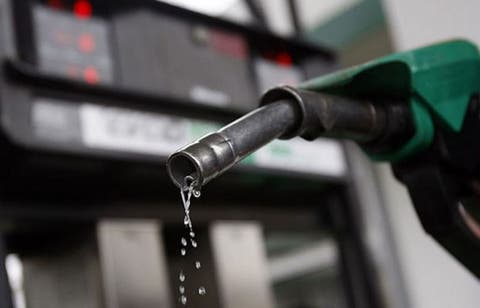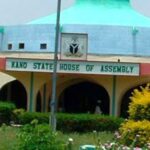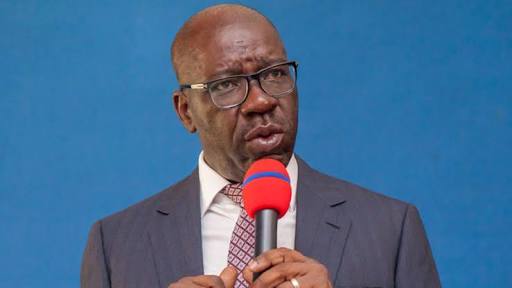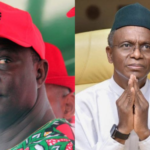The Nigeria Labour Congress and the Trade Union Congress have suspended the strike scheduled to commence today (Monday).
The development followed an agreement reached with the Federal Government at a meeting which started at 8.30pm on Sunday.
The meeting ended at 2:50am on Monday morning.
A communique signed by representatives of the government and labour said the meeting agreed to suspend the application of the cost-reflective electricity tariff adjustments for two weeks.
The NLC President, Ayuba Wabba; and his Trade Union Congress counterpart, Quadri Olaleye and others signed on behalf of Organised Labour while the Minister of Labour, Chris Ngige; Minister of State Petroleum, Timipre Silva; Minister of State Labour and Employment, Festus Keyamo (SAN); Minister of Information, Lai Mohammed; and the Secretary to Government of the Federation, Boss Mustapha and others, signed on behalf of the government.
The parties agreed to set up a technical committee comprising Ministries, Departments, Agencies, NLC and TUC.
The technical committee would work for a duration of two weeks, commencing from September 28, to examine the justifications for the new policy in view of the need for the validation of the basis for the new cost-reflective tariff as a result of the conflicting information from the fields which appeared different from the data presented to justify the new policy by NERC; metering deployment, challenges, timeline for massive rollout.
The members of the technical committee include the Minister of State Labour and Employment, Festus Keyamo (SAN) as Chairman; Minister of State Power, Godwin Jedy-Agba; Chairman, National Electricity Regulatory Commission, James Momoh; Special Assistant to the President on Infrastructure, Ahmad Zakari as the Secretary.
Other members are Onoho’Omhen Ebhohimhen, Joe Ajaero (NLC), Chris Okonkwo (TUC) and a representative of electricity distribution companies.
The committee’s terms of reference are to examine the justification for the new policy on cost-reflective electricity tariff adjustments; to look at the different DISCOs and their different electricity tariff vis-à-vis NERC order and mandate; examine and advise government on the issues that have hindered the deployment of the 6 million meters, among others.
The communique explained that during the two weeks, the DISCOs shall suspend the application of the cost-reflective electricity tariff adjustments.
The Federal Government would also fashion out palliatives that would ameliorate the sufferings that Nigerian workers may experience as a result of the hike in cost electricity tariffs and the deregulation of the downstream sector of the petroleum industry.
According to the communique, the palliatives will be in the areas of transport, power, housing, agriculture and humanitarian support.
It was also resolved that the 40 per cent stake of government in the DISCO and the stake of workers should be reflected in the composition of the DISCO’s boards.
“An all-inclusive and independent review of the power sector operations as provided in the privatization MoU to be undertaken before the end of the year 2020, with labour represented.
“All parties agreed on the urgency for increasing the local refining capacity of the nation to reduce the overdependency on importation of petroleum products to ensure energy security, reduce cost of finished products, increase employment and business opportunities for Nigerians,” the communique added.
It was equally resolved that the Nigerian National Petroleum Corporation should expedite the rehabilitation of the nation’s four refineries located in Port Harcourt, Warri and Kaduna to achieve 50 per cent completion by December 2021.
Also, timelines and delivery for Warri and Kaduna will be established by the inclusive steering committee.
According to the communique, to ensure commitment and transparency to the processes and timelines of the rehabilitation exercise, the management of NNPC offered to integrate the national leadership of the Nigeria Union of Petroleum and Natural Gas Workers and Petroleum and Natural Gas Senior Staff Association into the steering committee already established by the corporation.
A validation team comprising the representatives of the NNPC, Nigeria Extractive Industries Transparency Initiative, Infrastructure Concession Regulatory Commission, NUPENG and PENGASSAN would be established to monitor progress of the rehabilitation of the refineries and the pipelines/strategic depots network and advice the steering committee periodically.
The communique further disclosed that post-rehabilitation, NNPC shall involve PENGASSAN and NUPENG in the process of establishing the operational model of the nation’s refineries.
The Federal Government will facilitate the delivery of licensed modular and regular refineries, involvement of upstream companies in petroleum refining and establishing framework for financing in the downstream sector, the communique said, adding that NNPC would expedite work on the Build, Operate and Transfer framework for the nation’s pipelines and strategic depots for efficient transportation and distribution of petroleum products.
In the same vein, the government and its agencies agreed to ensure delivery of 1 million CNG/LPG AutoGas conversion kits, storage skids and dispensing units under the Nigeria Gas Expansion Programme by December 2021 to enable delivery of cheaper transportation and power fuel.
Also, to cushion the impacts of the downstream sector deregulation and tariffs adjustment in the power sector, the government agreed to announce in two weeks a specific amount to be accessed by workers with subsequent provision for 240,000 under the auspices of NLC and TUC for participation in agricultural ventures through the Central Bank and the Ministry of Agriculture.
It was also resolved that the Federal Government will facilitate the removal of tax on minimum wage as a way of cushioning the impacts of the policy on the lowest vulnerable.
Government would also to immediately make available to organized labour 133 CNG/LPG-driven mass transit buses.












Comments are closed.